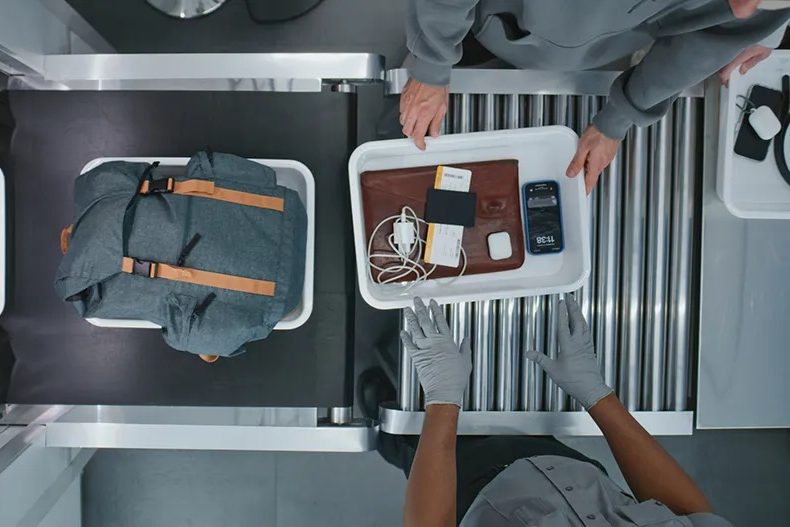North Carolina
The ancients used the sun and moon to measure time, but modern man has a more exact instrument at his disposal: the odometer. It has ticked up a thousand-plus miles, a sure sign the 2024 holiday season has just ended. The children are all struggling in the backseat — against one another, their own bladders and the nylon straps the Car Seat Cartel has foisted upon them — and are thus unable to see the dash’s mileage ticker, as well as the incriminating orange “service reminder” messages your wife is pretending to ignore. When you read aloud the “Welcome to North Carolina” sign, your most intelligent child says, “Are we still in the United States?”You make a mental note to increase the 401(k) contribution for you will be on your own for retirement; then you read the odometer and remember that you eschewed a 401(k) to pay for the roof rack.
In his Philosophy of Psychology, Wittgenstein introduces the concept of “aspect blindness,” in which a person fails to understand the deeper meaning behind what is right in front of them. “Could there be human beings lacking the ability to see something as something — and what would that be like?” he asks. The most brilliant philosopher of the twentieth century then spends several pages imagining what that would be like. You need only to turn to the backseat and contemplate those seven words: “Are we still in the United States?”
Of course we are. This is I-95, the most American of roadways. Look there, you tell your child, a blue sign for fried chicken delivered quickly. And over there a billboard for a motorcycle accident attorney looking formidable and genuine in his leather jacket. This is a far cry from Virginia where the motorcycle accident attorney looks formidable and genuine in his leather vest, and the fried chicken logo is red.
And it dawns on you that Wittgenstein, childless though he was, would be sympathetic to the plight of the twenty-first century father trying to help children navigate a world that is impatient with the aspect blind, yet insistent on erasing all demarcations that would help them learn to see something as something.
Prior generations of children grew up with definitive signs of when they had entered an adult space. Their senses told them so. They could look around the restaurant and see white tablecloths and formal dress. They could smell the aroma of tobacco coming from the den and know that boring discussions of tax rates and lawn care were taking place. They could feel the weight of their mother’s hand on their backside and know they should retreat outside to the other children.
Children today lack such tell-tale signs. The dress and décor of patrons at a TGI Fridays are no different than that of a Zagat-rated restaurant; my daughters are the only people in either establishment not wearing yoga pants or glorified pajamas. We should forgive a child for spying a dog and giant Jenga blocks in the eatery and discerning that it is not a serious place or recognize that a public green is a place where children may do cartwheels, even if a grown man sees it as an ideal reading spot. The only way to discern an adult-space from that of freedom is the hissing that arises after the kids have run afoul of etiquette.
Our egalitarian age eliminated the high-low distinction to free adults from neckties and social obligations that did not jibe with their self-conceit. The result is a mushy middle culture that has grown more childish and yet childfree. Manners may have been relaxed, but etiquette will always be with us, and the burden for instilling in our children ever more nebulous rules of our cultural language falls upon parents. It is a language game that Wittgenstein would recognize as rigged.
The infantilization of America is not unlike I-95, where the only sign anything has changed is the odometer that is not visible to the backseat. There is an easy fix, one that a startling number of parents opt for out of social pressure. The adults who have commandeered public spaces want to see your child become an iPad drone, seen but too distracted to be heard. They are no doubt aware of the brain rot that accompanies the screen. They do not care, for it is not their child. It is your job as a father to opt out of a game designed to sacrifice your child’s wellbeing so Anastacia and her girlfriends can gab about the latest developments on the reality show they’ve been binge-watching on their own devices.
iPads have their place — on the back of the passenger headrest during interstate Christmas travel — but they should never be mistaken for tools of socialization. If modern etiquette dictates that children must become automata, then damn etiquette. Ignore the hissing. The best tool you can provide your child is exposure to adult spaces with clear forewarnings about how to behave. The best tool you can provide an entitled man-child is to help him resolve his own aspect blindness, in which he sees children as non-humans, dogs as children, oversized Jenga as a worthy adult activity, and nothing as something.
This article was originally published in The Spectator’s January 2025 World edition.


























Leave a Reply